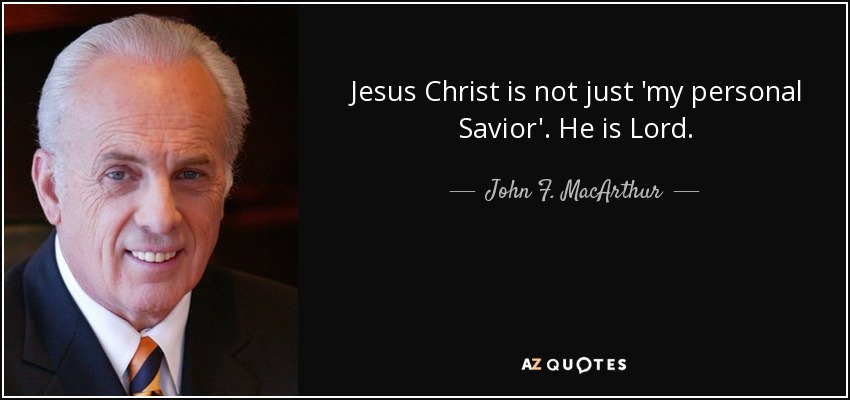Click here to return to Blog Post Intro
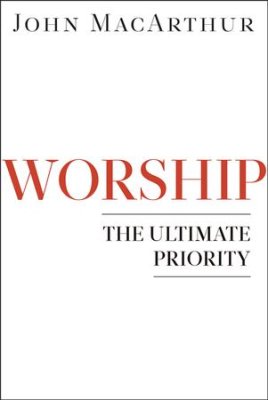
What the World Needs Now
In the Old Testament, worship covered all of life; it was supposed to be a continual preoccupation for the people of God.
The Tabernacle was designed only for worship. It was the place where God met His people. To use it for anything but worship would have been considered the grossest blasphemy. In the Tabernacle there were no seats. The Israelites didn’t go there to sit and be ministered to, and they certainly didn’t go there for entertainment. They went there to worship God and serve Him. If they had a meeting for any other purpose, they had it somewhere else. The arrangement of the camp suggests that worship was central to all other activity.
Our lives are to be holy, acceptable, and fragrant (Romans 12:1 and 2 Corinthians 2:15). The person who uses his life for any purpose other than worship—no matter how noble that purpose may seem—is guilty of a grave sin.
The Bible clearly teaches that those who offer self-styled worship are unacceptable to God, regardless of their good intentions. No matter how pure our motivation may seem or how sincere we are in our attempt, if we fail to worship God as He has commanded, He cannot bless us.
Scripture suggests at least four categories of deviant worship.
- Worship of False Gods: Exodus 34:14 says, “You shall not worship any other god, for the Lord, whose name is Jealous, is a jealous God.” Yet most of the world worships false gods. “Therefore God gave them over in the lusts of their hearts to impurity, so that their bodies would be dishonored among them.” Verse 26 says, “God gave them over to degrading passions.” Verse 28 adds, “God gave them over to a depraved mind.” So the result of improper worship is that God simply gives the idolaters over to their sin and its consequences. Can you think of anything worse? Their sin increasingly becomes the dominating factor in their lives, and ultimately, in Romans 1:32–2:1, we learn that they face judgment without any excuses.
- Worship of the true God in a wrong form.
- Worship of the true God in a self-styled manner.
- Worship of the true God in the right way, with a wrong attitude. If we eliminate all false gods, all images of the true God, and all self-styled modes of worship, our worship will still be unacceptable if the heart attitude is not right.
We must seek a fresh understanding of worship. God has commanded it. Our ministry depends on it. It is crucial to our relationship to Him and our testimony in this world. We cannot afford to ignore it. Too much is at stake.
How Shall We Then Worship?
Every aspect of the order of service—the music, the praying, the preaching, and even the offering—is worship rendered to God.
Worship is a participant’s activity, not a spectator sport. Many realized for the first time that worship is the church’s ultimate priority—not public relations, not recreation and social activities, not boosting attendance figures—but worshiping God.
If God desires worship in spirit and truth, and if worship is something offered to God—and not just a show put on for the benefit of the congregation—then every aspect of our worship must be pleasing to God and in harmony with His Word. So the effect of our renewed emphasis on worship was that it heightened our commitment to the centrality of Scripture.
The Reformers had a principle called sola Scriptura—Scripture alone. Scripture really is the only source we can turn to for infallible spiritual truth. God disapproves of all modes of worship not expressly sanctioned by His word.
An English contemporary of Calvin, John Hooper, stated the same principle this way: “Nothing should be used in the Church which has not either the express Word of God to support it, or otherwise is a thing indifferent in itself, which brings no profit when done or used, but no harm when not done or omitted.”
The contemporary church has abandoned sola Scriptura as the regulative principle, opening the church to some of the grossest imaginable abuses—including honky tonk church services, wrestling exhibitions, and (in some cases) virtually a carnival sideshow atmosphere. Even the broadest, most liberal application of the Reformers’ principle would have a corrective effect on such abuses. Consider for a moment what would happen to corporate worship if the contemporary church took sola Scriptura seriously.
Here are four Biblical guidelines for worship:
- Preach the Word. In corporate worship, the preaching of the Word should take first place. In Between Two Worlds, John Stott says it well: “Word and worship belong indissolubly to each other. All worship is an intelligent and loving response to the revelation of God, because it is the adoration of his Name.”
- Edify the flock. Scripture tells us that the purpose of spiritual gifts is for the edification of the whole church (Ephesians 4:12; cf. 1 Corinthians 14:12). True worship merges heart and mind in a response of pure adoration, based on the truth revealed in the Word.
- Honor the Lord. Hebrews 12:28 says, “Let us show gratitude, by which we may offer to God an acceptable service with reverence and awe.” That verse speaks of the attitude in which we should worship. The Greek word for “service” is latreuo, which literally means “worship.” There is certainly no place in the corporate worship of the church for the kind of frivolous, shallow, giddy atmosphere that often prevails in the sort of church that is desperately seeking to be “relevant” for a postmodern comedy-club culture.
- Put no confidence in the flesh. In Philippians 3:3 the apostle Paul characterizes Christian worship this way: “We are the true circumcision, who worship in the Spirit of God and glory in Christ Jesus and put no confidence in the flesh.”
Worship should be the Ultimate Priority. Consider Martha—troubled to distraction with the chores of being a hostess—when our Lord said, “Martha, Martha, you are worried and bothered about so many things; but only one thing is necessary” (Luke 10:41–42). The point was clear. Mary, who sat at His feet in adoration, had “chosen the good part, which shall not be taken away from her” (v. 42). Mary’s worship had eternal significance. Our Lord was teaching that worship is the one essential activity that must take precedence over every other activity of life.
Worship Is a Way of Life
Here is a simple definition of worship: worship is honor and adoration directed to God. Worship is ascribing to God His worth, or stating and affirming His supreme value.
Worship can be reflected in how we behave toward others. Romans 14:18 says, “For he who in this way serves [latreuo] Christ is acceptable to God.” What is this acceptable offering given to God? The context reveals that it is being sensitive to a weaker brother.
Our definition of worship is enriched when we understand that true worship touches each area of life. We are to honor and adore God in everything.
God’s Word repeatedly confirms the absolute priority of worship. Hebrews 11 contains a list of Old Testament heroes of faith. First on the list is Abel. His life echoes one word: worship. The single dominant issue in Abel’s story is that he was a true worshiper. The second person in Hebrews 11 is Enoch, who also may be identified with a single word: walk. Enoch walked with God; he lived a godly, faithful, dedicated life. Third on the list is Noah. When we think of Noah, the word we think of is work. He spent 120 years building the ark. That is work—the work of faith. There is an order to Hebrews 11 that goes beyond the chronological. It is an order of priorities: first comes worship, then walk, then work.
We are too many Marthas and too few Marys. We are so deeply entrenched in the doing that we miss the being. We are programmed and informed and planned and busy, and we slight worship!
A. W. Tozer famously called worship “the missing jewel of the church.”
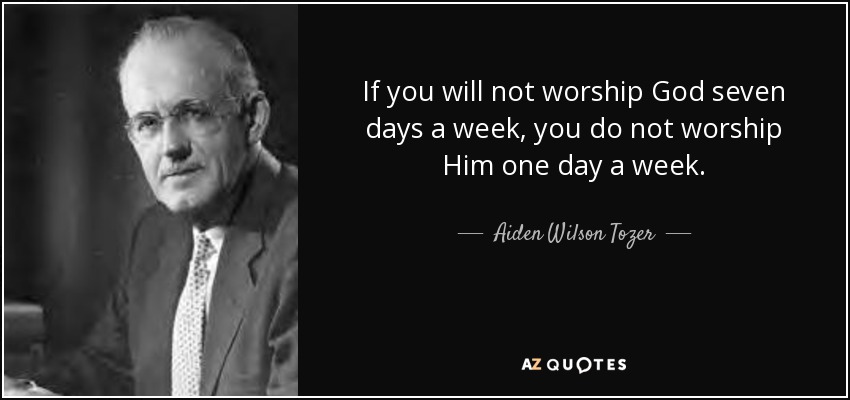
By most estimates there are more than 300,000 churches in America with more than a $100 Billion dollars worth of facilities ostensibly dedicated to worshiping God. But how much true worship takes place?
Saved to Worship
In Matthew 4:10, in response to Satan’s temptation, Jesus quoted Deuteronomy 6:13: “You shall worship the Lord your God and serve Him only.” In saying that to Satan, He swept into the command every being ever created. All are responsible to worship God.
There was a distinct pattern in Israel’s history, as the Levites saw it. Invariably when the people were worshiping God properly, God blessed them. But when they failed to worship God as He wanted to be worshiped, they were punished.
Worship God. It is the theme of Scripture, the theme of eternity, the theme of redemptive history—to worship the true and living and glorious God.
In John 4, Jesus uses the term “true worshipers” to describe all believers. “True worshiper” is equivalent to “Christian,” or “believer,” or “saint,” or “child of God”—or any other term used to describe our union with Christ. It is perhaps the most appropriate of all those expressions, because it captures the result of salvation in active, rather than static, terminology.
In spite of what many people nowadays think, the distinguishing mark of authentic faith is not love—as if a generic sort of benevolent kindness were unique to Christianity. Actually, the true mark of a genuine Christian is that he worships God in the spirit. All other virtues, including the fruit of the Spirit (Galatians 5:22–23), have their roots in worship.
Worship in spirit and in truth is not only the real mark of the Christian; it is also the touchstone of every other virtue.
God: Is He? Who Is He?
The majority of people deny God’s existence one way or the other. Many who are not philosophical atheists are practical atheists. Although they do not reject the concept of God, they live as if He didn’t exist. Titus 1:16 describes such people: “They profess to know God, but by their deeds they deny Him, being detestable and disobedient and worthless for any good deed.”
Romans 1 tells us that all people know deep in their hearts God exists. Verse 19 says, “That which is known about God is evident within them.”
Verse 20 says, “Since the creation of the world His invisible attributes, His eternal power and divine nature, have been clearly seen.” So everyone begins life with a sense of God’s existence and evidence of God all around us. But because of sin, people deliberately suppress the knowledge of God. Verse 21 says: “They knew God.” And verse 28 says, “They did not see fit to acknowledge God.” The Bible presupposes, rather than proves, God’s existence.
As Christians we accept one foundational truth—God. Then everything else makes sense. An atheist denies God and has to accept incredible explanations for everything else. It takes more faith to deny God than to believe in Him. We know God is a person because He thinks, acts, feels, speaks, and communicates. All the evidence of creation, all the evidence of the Scriptures, indicates that He is a person.
God is a Spirit. That means He does not exist in a body that can be touched and seen like our bodies. Jesus said, “A spirit does not have flesh and bones” (Luke 24:39). An understanding of these basic realities, Jesus said, is essential to acceptable worship: “God is spirit, and those who worship Him must worship in spirit and truth” (John 4:24).
The simplest way to perceive the Trinity is to read the Bible from the beginning to the end. The word for God in Genesis 1 is “Elohim.” It is plural.
The seraphim Isaiah saw and described in Isaiah 6 cried to one another with this threefold exclamation: “Holy, Holy, Holy” (v. 3). Again, it seems to be an allusion to the Trinitarian nature of God. One of the clearest Old Testament references to the Trinity is Isaiah 48:16, a prophetic verse spoken by Jesus Christ. It puts all three members of the godhead together in one verse: “And now the Lord God has sent Me, and His Spirit.”
The doctrine of the Trinity stands as a perpetual reminder we cannot comprehend everything God has revealed about Himself. At Jesus’ baptism all three Persons of the Trinity were manifested at once. God is one and yet He is three at the very same time.
True worship has as its object the true God. There is no need to erect an altar to “the unknown god,” because God has made Himself knowable.
The Unchanging, Omnipotent God
In Hosea 6:6, the Lord says, “I delight in loyalty rather than sacrifice, and in the knowledge of God rather than burnt offerings.”
Idolatry goes beyond the making of a false god. Fundamentally, idolatry is thinking thoughts about God that are untrue of Him, or entertaining thoughts about Him that are unworthy of Him.
Contemporary Christianity has lowered God to its level, robbing Him of majesty and holiness. That is as idolatrous as worshiping a rock.
The right way to know God and understand all that is revealed about Him is to make the knowledge of God the primary quest of your life. We get into trouble when we try to make God too much like what we know. When we use human symbols to describe God.
The Bible teaches that God is not susceptible to change. He is unchangeable and unchanging (Psalm 102:25–27). That God does not change is a great source of comfort to believers. It means that His love is forever. His forgiveness is forever. His salvation is forever. His promises are forever.
Fifty-six times in the Bible the word almighty is used. Always it is used of God; never of anyone else.
Here are four areas in which God’s power can be seen most clearly:
- His ability to create something from nothing. Psalm 33:6 says, “By the word of the Lord the heavens were made, and by the breath of His mouth all their host.” Verse 9 adds, “He spoke, and it was done; He commanded, and it stood fast.” Romans 4:17 says He “calls into being that which does not exist.”
- His ability to sustain His creation. Hebrews 1:3 says He “upholds all things by the word of His power.”
- His ability to redeem the lost. What makes redemption truly startling is that God called to Himself a selection of nobodies and made them confound those who are wise in their own estimation and those who are mighty in the world’s eyes.
- His ability to raise the dead.
An understanding of God’s omnipotence is a strong motivation to worship, because for the Christian, God’s power is a basis of daily confidence in Him.
The God Who Is Everywhere—And Knows Everything
In 1 Chronicles 28:9, David told his son, “Know God, and when you know Him, serve Him willingly and eagerly. David continues, “For the Lord searches all hearts, and understands every intent of the thoughts. If you seek Him, He will let you find Him; but if you forsake Him, He will reject you forever.”
Knowing God is the essential basis of true wisdom and discernment. A human being is wise to the degree he understands the true God.
God is Omnipresent. People have always tried to confine God. Since our finite minds cannot possibly comprehend the infinity of His attributes, our natural tendency is to downsize Him in our thoughts. Whatever adverse circumstances or emotions we experience, whether we realize He is there or not, God is with us. God’s presence also means support for the believer.
When Christ gave the disciples the mandate we know as the Great Commission, He punctuated it with this promise: “And lo, I am with you always, even to the end of the age” (Matthew 28:20). It was His assurance that work done for Him would be blessed by His presence and powerful aid. God’s continuing presence is also a shield against overwhelming temptation.
Not only does God observe every sin and fully comprehend every motive, He will call us to account for every idle word we utter and every secret thought we entertain. “There is nothing covered up that will not be revealed, and hidden that will not be known. Accordingly, whatever you have said in the dark will be heard in the light, and what you have whispered in the inner rooms will be proclaimed upon the housetops” (Luke 12:2–3).
To those who trust Him, God’s attributes are uplifting, encouraging, strengthening; sources of great comfort, confidence, and assurance. But to those who rebel and refuse to trust Him, God’s attributes become threats, causes for fear, harbingers of eternal doom. God is immutable, omnipotent, omnipresent, and omniscient. Our response to that ought to be humble, honest worship. It is easy to be proud if we focus on ourselves.
Holy, Holy, Holy
What beyond His unchanging, all-powerful, infinitely knowing presence compels us to worship? It is basically this: God is holy. Of all the attributes of God, holiness is the one that most uniquely describes Him. In reality, this is a summarization of all His other attributes.
Holiness is so uniquely and exclusively an attribute of God that Psalm 111:9 says, “Holy and awesome is His name.” God doesn’t conform to a holy standard; He is the standard.
God’s holiness is seen in the moral law. One of the primary reasons God instituted the law under Moses was to demonstrate His holiness. When God laid down a legal standard of morality, He proved Himself to be a righteous, moral, holy being. In Romans 7:12 Paul says, “The law is holy, and the commandment is holy and righteous and good.”
Between God’s holiness and humanity’s unholiness is a gulf. And until a person understands the holiness of God, that person can never know the depth of his or her own sin. We ought to be shaken to our roots when we see ourselves against the backdrop of God’s holiness. If we are not deeply pained about our sin, we do not understand God’s holiness at all. Without such a vision of God’s holiness, true worship is not possible.
If you have never worshiped God with a broken and a contrite spirit, you’ve never fully worshiped God, because that is the only appropriate response to entering the presence of holy God.
Our relationship to God has become too casual. In the modern mind, God has become almost human, so affable and ordinary that we don’t understand His holy indignation against sin.
True worship, then, demands a clear awareness of God’s holiness, a deep sense of my sinfulness, and a sincere cry for purging. That’s the essence of the proper attitude of worship.
Jesus Christ was God in human flesh. Naturally, then, Jesus’ presence aroused a sense of fear in people. They were intimidated in His presence. Even the disciples were fearful when they faced squarely the reality that He was God. In Mark 4:37–41, we read that while the disciples were crossing the lake in a boat with Jesus, a storm struck, and their boat began to sink. The disciples panicked and awoke Jesus, who was sleeping through it all. He calmed the storm, and rebuked them for their unbelief. Verse 41 tells us that after Jesus stilled the storm, they were “exceedingly” terrified. There’s at least one thing more frightening than a fierce storm outside your boat: having to face the holiness of God inside your boat.
We are so used to mercy and grace that we think God has no right to be angry with sin. Romans 3:18 sums up the world’s attitude: “There is no fear of God before their eyes.” We in modern Christianity have somehow missed that truth. While we are thankful for the reality of God’s grace, and while we want to enjoy the experience of His love, we have somehow neglected the truth of His holiness. That imbalance is eating at the heart of our worship. God is a living, eternal, glorious, merciful, holy being. His worshipers must come in the contrition and humility and brokenness of sinners who see ourselves against the backdrop of that holiness.
A New Era Dawns

Worship is not merely an activity to be injected into our schedules at certain intervals; rather worship is itself a whole-life commitment, an all-encompassing response to holy God, possible only for those who have been redeemed.
The Sabbath had an even higher purpose that was purely symbolic. In the same way that the sacrificial system with all its spotless lambs and slain bullocks and blood sacrifices symbolized the atonement Christ made on the cross, the Sabbath system symbolized the true rest and true worship for the people of God to be found through Messiah. The Sabbath system pointed to a time when God’s people would unite in a holy convocation, a spiritual liberating of captives and setting free of slaves—a real cessation of labor.
Christendom has initiated its own specially educated and ordained priesthood, whose presence is indispensable to “administer the sacraments.” These men, robed in gorgeous vestments, from within a roped off “sanctuary,” stand before a bloodless “altar,” with a background of burning candles, crosses and smoking incense, and “conduct the worship” for the laity. If our Lord came today He would denounce that kind of ritualistic worship.
Christ ushered in the new era of true worship—worship that does not focus on the externals or on the symbolic but on the internal and genuine. That is what the Father seeks, and that is what the Son demands. Anything less falls short.
This Must Be the Place
Worship is not an activity to be confined to a specific place, time, and form.
One thing we have seen to be clear from Jesus’ words: the old system is dead. The place of worship is not in Mount Gerizim, and it is not the Temple at Jerusalem. The old ceremonial rituals and observances are gone. There is no place today for an elite priesthood, altars, sacrificial masses, burning candles, or smoking incense. Those things represent Judaism, paganism, and extrabiblical human tradition dragged across the line between covenants, ignoring the new and living way and the priesthood of all believers.
God has permitted us to enter into the Holy of Holies through the blood of Christ. Such a thing could not be done by those living under the old covenant. They worshiped God from a distance.
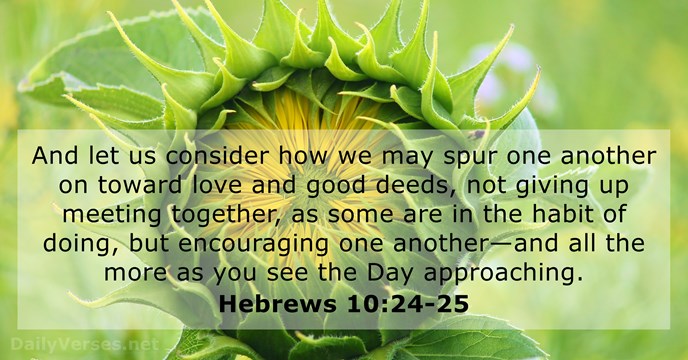
As believers, we are to assemble to stimulate one another to love (that’s sharing) and to good deeds (that’s doing good). Remember that both of those activities constitute worship. The church is a family, linked by common citizenship and common life.
Even the most casual approach to worship is “formal” in this sense: it follows a pattern and includes certain features such as music, public prayer, an offering, a sermon, and the observance of certain ordinances—at least baptism and communion. When people nowadays speak of worship, they usually have in mind the form, the style, the activities, and the ordinances—rather than the substance. (In fact, in colloquial usage the word worship has practically become a synonym for music, and all other features of our public worship are practically regarded as something other than worship.)
When the redeemed assemble—hearts overflowing with praise cultivated through lifestyles of pure, acceptable worship—the whole congregation is mutually stimulated to worship God. There should be a bursting out, a boiling over, of true praise and heartfelt worship, because what has been enjoyed individually is expressed, then enriched and enhanced when brought into the joy of the assembly. The results are powerful.
Søren Kierkegaard said, “People have the idea that the preacher is an actor on a stage and they are the critics, blaming or praising him. What they don’t know is that they are the actors on the stage; he is merely the prompter standing in the wings, reminding them of their lost lines.” And God is the audience!
The source of most of the problems people have in their Christian lives relates to two things: either they are not worshiping six days a week with their life, or they are not worshiping one day a week with the assembly of the saints. We need both.
Worship the Father
The issue is not where you worship, but rather whom you worship and how you worship. In speaking to the woman at the well, Jesus used two nouns to refer to the “whom” of worship—“Father” and “spirit”—and both are essential in identifying the only legitimate object of true worship.
A worshiper may have the concept of a holy, omnipotent, omnipresent, loving, righteous God who is a spirit, and still fall short of worshiping the true God. The most all-encompassing and clearest distinguishing characteristic of the true God is found in the title Jesus used for God more often than any other—Father.
There are those who assert that Muslims, Jews, and Christians all worship the same God, only in different ways. That is not true. The one true God is the Father of the Lord Jesus Christ. He cannot be defined in any other terms.
The bottom line in all worship: we come to God only through Christ, and we come to Christ in coming to God. Worship of the Father cannot be separated from worship of the Son. Only a genuine believer in Jesus Christ is capable of true worship. Only a Christian has access to the Son through the Spirit, so only a Christian can come before God to offer worship. Jesus summed it up in a simple statement:
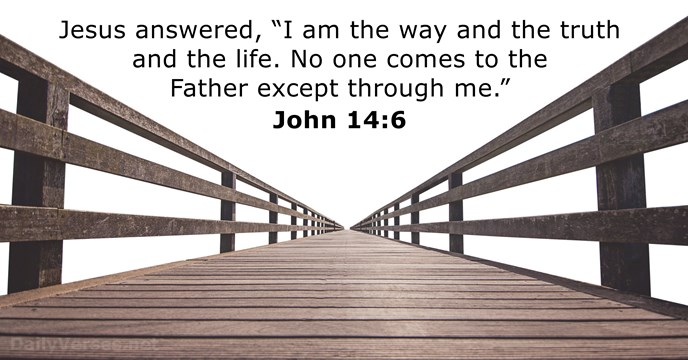
Worship in Spirit and in Truth
Worship is to flow from the inside out. It is not a matter of being in the right place, at the right time, with the right words, the right demeanor, the right clothes, the right formalities, the right music, and the right mood. Worship is not an external activity for which an environment must be created. It takes place on the inside, in the spirit.
Authentic worship is a function of the heart. It’s not about rituals, costumes, atmosphere, special locations, or other external things.
On the twenty-sixth Lord’s day of 1881 Andrew Bonar wrote in his diary, “During the whole day and every service I felt myself strengthened and upheld by the Lord’s presence in Spirit, more than usual. There were moments of great nearness.” That is a description of worship in the spirit, in which there is an overwhelming sense of the nearness of God. James 4:8 says, “Draw near to God and He will draw near to you.”
We must be yielded to the Holy Spirit. Before we can worship God in our spirit, the Holy Spirit has to be there to produce true worship.
If we are to worship in spirit, our thoughts must be centered on God. Worship is the overflow of a mind renewed by God’s truth. We call the process meditation. There seems to be a lot of confusion about what meditation is. Meditation is just focusing the whole mind on one subject, concentrating reason, imagination, and emotion on one reality.
We must be repentant. Our sin must be dealt with. When we talk about worship we must talk about cleansing, purging, purifying, confessing, repenting—because no one can enter into communion with an utterly holy God if that person’s sin is not dealt with.
The challenge of the pulpit is to bring the people to the place of worship as a way of life. In Between Two Worlds, John Stott says it well, “Word and worship belong indissolubly to each other.”
Truth is always at the heart of authentic worship. Every kind of enthusiasm or emotion that is not inseparably linked to the truth is ultimately meaningless.
When the Word of God dominates your life, your praise is regulated, and your worship is conformed to the divine standard.
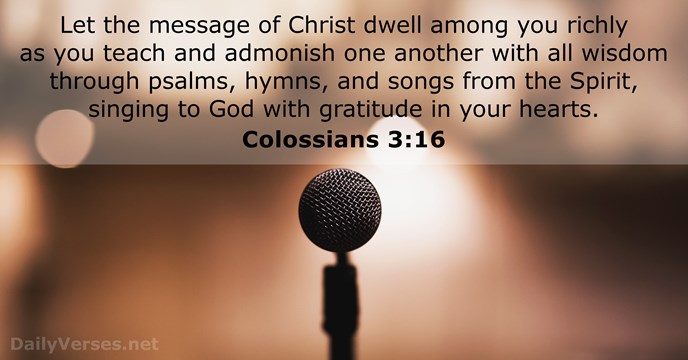
Glory to God in the Highest
Worship is our innermost being responding with praise for all that God is, through our attitudes, actions, thoughts, and words, based on the truth of God as He has revealed Himself. Another way to say it is that worship is glorifying God.
The first question and answer in The Shorter Catechism are: “What is the chief end of man? Man’s chief end is to glorify God, and to enjoy Him forever.” According to the catechism, then, the pinnacle of being and the purpose for which we were created in the first place is to give God glory and enjoy Him eternally.
God’s glory has two aspects:
- His inherent, or intrinsic glory. God is the only being in all of existence who can be said to possess inherent glory. We don’t give it to Him; it is His by virtue of who He is.
- Ascribed glory. That is what the Bible refers to when it speaks of giving God glory. Psalm 29:1–2 says, “Give unto the Lord, O ye Mighty, give unto the Lord glory and strength. Give unto the Lord the glory due unto his name; worship the Lord in the beauty of holiness.”
Recognize God’s glory and acknowledge it. Creation itself magnifies God. Psalm 19:1 says, “The heavens are telling of the glory of God.”
Why should we glorify God?
- He made us. Psalm 100 says, “It is He who has made us, and not we ourselves.”
- God made everything to give Him glory. The whole purpose of creation is to glorify God. Proverbs 16:4 (KJV) says, “The Lord hath made all things for Himself.”
- Just as worship is a way of life, so glorifying God must be the worshiper’s conscious, continual, purposeful, and perpetual aim. First Corinthians 10:31, a well-known but too-little practiced verse, gives the strategy of a true worshiper’s life: “Whether, then, you eat or drink or whatever you do, do all to the glory of God.”
A student once thought he would impress D. L. Moody. The young man had been in an all-night prayer meeting and was feeling especially spiritual. He came to Mr. Moody and said, “Do you know where we’ve been? We’ve been at an all-night prayer meeting. See how our faces shine?” Mr. Moody, unimpressed, quoted Exodus 34:29: “Moses knew not that his face shone.”
Devoting our lives to God’s glory means sacrificing self. Living for God’s glory always involves suffering, and there is more than one kind of suffering.
How to Glorify God
One of the great tragedies of contemporary Christianity is that we have allowed the concept of worship to degenerate to the point that many people think of worship as sitting quietly and piously, dreaming and contemplating.
Worship is deliberate, purposeful, and active. It involves not just the thought process, and not merely the emotions, but the whole being as well. The life of a true worshiper is a joyous, vibrant life—a life of actively seeking to glorify God in practical ways.
We don’t often think of the confession of sin as worship, but it is. When we confess our sins, we are humbling ourselves before God, acknowledging His holiness, experiencing His faithfulness and righteousness in forgiving us, accepting any chastisement He may give, and thereby glorifying Him. In fact, confession serves the dual purpose of being an act of worship itself and of preparing the repentant sinner to worship.
Confessing sin is glorifying God; it exonerates God and acknowledges that He is holy when He acts in judgment against evil. Heinrich Heine, the famous German philosopher and skeptic, said, “You show me your redeemed life and I might be inclined to believe in your redeemer.” Spiritual fruit is evidence to the world of the results of an obedient life.
Additionally, worship and prayer are inseparable. John 14:13 is a clear statement that prayer glorifies God: “And whatever you ask in my name, that will I do, so that the Father may be glorified in the Son.”
The true worshiper also lives a life of contentment, regardless of circumstances. Contentment testifies to the wisdom and sovereignty of God and thereby glorifies Him.
Worship as It Was Meant to Be
William Temple (Archbishop of Canterbury in the early 1940s) defined worship this way: “To worship is to quicken the conscience by the holiness of God, to feed the mind with the truth of God, to purge the imagination by the beauty of God, to open the heart to the love of God, to devote the will to the purpose of God.”
Acceptable worship does not happen spontaneously. Preparation is essential. In a worship service, for example, the choir prepares, the preacher prepares, and the organist and other musicians prepare. But the most important preparation of all is the preparation of the individual worshiper, and that is usually the most neglected.
Hebrews 10:22, a call to worship, gives four checkpoints to test our readiness for worship:
- Sincerity: We must draw near “with a true heart.”
- Fidelity: “Draw near … in full assurance of faith.”
- Humility: Hebrews 10:22 says, “Let us draw near … having our hearts sprinkled from an evil conscience.”
- Purity: “Let us draw near … having … our bodies washed with pure water.”
Daily confession and spiritual purging are necessary to deal with the sins of our humanness. These, then, are the checkpoints: sincerity, fidelity, humility, and purity. Without them we are not prepared to enter God’s presence to worship.
Job had not sinned like David. God was not chastising him for sin—He was allowing Satan to test Job. Yet Job said, “Naked I came from my mother’s womb, and naked I shall return there. The Lord gave and the Lord has taken away. Blessed be the name of the Lord” (Job 1:21). His response was unquestioning submission. Many people are not able to worship God because they refuse to accept their place in life, their job, their career, their partner, their children, or the other circumstances God brings into life. Their response is bitterness, and they cannot worship.
When God’s people worship as God requires, several results can be observed. First, and obviously, God is glorified. When we worship God as He desires to be worshiped, believers are purified.
Another hallmark of worship as God means it to be is that the church is edified—the saints are built up and transformed. Edification does not mean we feel better; it means we live better. The Lord purges, purifies, and builds up the church.
When we worship God acceptably, the lost are evangelized. The profound testimony of a worshiping individual or church has a greater impact on the lost than most sermons.
As the people of God worship together, lifting their hearts to God and experiencing His infinite blessing, their faces shine because they’re in His presence. That has an impact on the people of the world that is impossible to measure. All our apologetics and evangelistic methods can never duplicate the impact of true worship.
